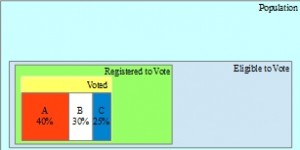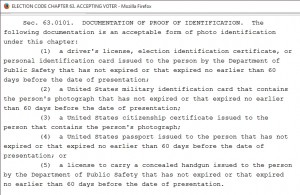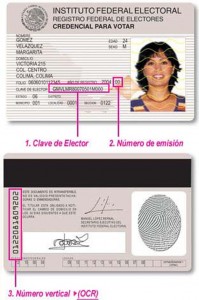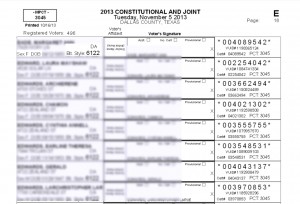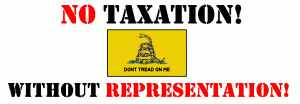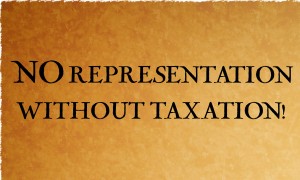When do two wrongful acts turn out to be right?
A short review of the Exclusionary Rule
Maybe you’ve heard of the right of a defendant on trial to exclude evidence that was obtained illegally. Say, for example, that police went to a residence and just decided on their own that something was wrong, without any real cause or complaint from anyone, and they broke the door down, and voila found a small bag of marijuana in the back of the upstairs closet.
The district attorney, citing the evidence discovered by the police, gets the owner of the house brought in for questioning. During the owner’s interview with police, the owner admits he knew there was a plastic bag containing some crumbled leaves in a disused room, but he denies any wrongdoing. After several long hours of discussion, the owner signs a statement and tries to leave, but he is simply arrested.
After the weekend, the accused is brought before a judge, and the owner tries to explain what happened. The judge, however, repeats his question of whether the accused has counsel and promptly appoints a lawyer in the courtroom to be the owner’s attorney. Just as promptly, the lawyer enters a plea of ‘not guilty’ and asks for release of the owner on his own recognizance.
The state asks that bail be denied because of the seriousness of the crime the owner is accused of, Possession with the Intent to Distribute a Control Substance. The judge binds the defendant over for trial. The judge sets bail for $25,000 and bangs his gavel.
So far, you may wonder whether the owner is guilty and whether things have proceeded according to rules that are designed to protect us from intrusion by the government and the Constitutional protections against self-incrimination and against unreasonable search and seizure.
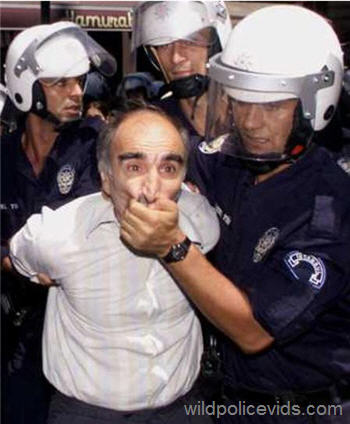
You Have the Right to Remain Silent, Mr. Miranda!
Eventually, the defendant is able to connect with someone outside of jail and they arrange for a bail bondsman to post bail after paying him $2,500 and pledging other property for the full amount. Hours later the defendant is released and goes home to find his home ransacked and many things broken, including the front door jamb. He doesn’t know how much stuff was stolen by passers-by or neighbors, but he realizes that his expensive flat-screen television is gone.
Some weeks later, after interviews with the court-appointed attorney, the defendant re-appears in court and the defense lawyer moves that the case be dismissed on the grounds that the defendant’s rights were violated. That is, the search was not properly authorized by a judge via a search warrant. Quickly, the district attorney consults with his colleagues and asks for a brief recess.
Returning from the recess, the district attorney withdraws the charge of intent to distribute and the defendant is set free.
This could have played out in several different ways. The trial could have proceeded instead of having a review of the admissibility of the evidence, and the defense lawyer could have brought it up later. Alternatively, the officer testifying as to the conduct of the search that resulted in the find could have been cross-examined by the defense attorney to reveal the lack of proper procedure to obtain a proper search warrant. Any of these or some other processes could have resulted in the ‘tainted’ evidence being made beyond consideration by the jury. The jury could have been asked without the bag found as evidence to decide whether a crime was committed.
If, hypothetically, we could have stepped into our time-machine viewport and witnessed for ourselves whether the defendant actually had distributed the outlawed weed and some portion was stashed by him in the closet, we’d know. If on the one hand we knew that the defendant was guilty, the wrongful act of the police in failing to get a search warrant resulted in the wrong of the defendant being canceled out. In effect, the two wrongs made a right!
There is a long history that led up to the Exclusionary Rule and it does encompass other acts that the police could have committed to cancel out the evidence obtained by them. Confessions and testimony can also be excluded. The question for us is whether, as a matter of public policy, the Exclusionary Rule makes sense.
Are the defendant’s rights so paramount that any failure along the way should nullify evidence against him? Put yourself in the place of a defendant. You know that the Constitution guarantees your right under the Fourth Amendment against unreasonable search and seizure.
The right of the people to be secure in their persons, houses, papers, and effects, against unreasonable searches and seizures, shall not be violated, and Warrants shall not be issued, but upon probable cause, supported by Oath or affirmation, and particularly describing the place to be searched, and the persons or things to be seized.
This seems rather clear. Your body, your home, your records, and your things all are “reasonably” safe from search and some government official grabbing them and carting them off, period. Plus, a warrant to perform a search or other act can’t just be signed in blank – it has to describe what or where the police will search and what they will take, and only after someone has sworn to a judge that something was observed that appeared to be wrong and the judge agrees with that assessment.
Note that a reasonable search is not precluded in this portion of the Bill of Rights, but what is reasonable is left for later evolution. Also, notice that no consequence of violating these rights is described. Courts did, however, reason that the State somehow benefited from unconstitutional searches. [Remember, we the people are the state.] And to punish the State is a good counter to any benefit derived.
Never mind that officials of the State and the State (We, the People) are two distinct entities. When an official of the State steals from the State’s bank account, he will be charged (unless of course he is a Congressman taking foreign currency) with a crime. But, when an official violates a person’s rights by conducting a search illegally, he is not acting on his own behalf, but rather on behalf of the State and therefore the State benefits, not the official. At least this is the reasoning.
A reasonable person would say that we the people derive no benefit from the seizing of evidence in a search without a proper warrant. A policeman of some official may derive some benefit from the illegal act by increasing his prestige and possibly emolument (paycheck, rank, award, etc.). However, the court punishes the whole State by releasing a potential criminal, forever tainting the evidence against him with the exclusionary rule, but in fact a policeman who decides to break into a home without proper authorization on improbable cause is not punishable by law (this was changed about a century ago around the time of income tax). Certainly, he may suffer some administrative action against him, but it seems clear that because the criminal was released and the bad policeman was not charged that:
Two wrongs were committed, but the larger crime goes unpunished. Effectively, two wrongs make a right!
Now, we can disagree on whether a crime was actually committed and whether any crime is a large one or a small one. But, we should all agree that the policeman who breaks the law is breaking the law, and the criminal who breaks the law is also breaking the law. The court’s current thinking nullifies the wrong of the criminal because the policeman wronged him. But, what about the State? Why are we the people punished along with the official?
The policeman should have to face charges as if he were an ordinary citizen breaking into someone’s home. The damages he and his colleagues inflicted on the personal effects in the home and the home itself are vandalism. If these acts were authorized by a judge in the form of a warrant, the State has a positive defense. Who does pay for the broken doorframe or missing items?
If not authorized by a judge, then it would be like a neighbor breaking in, and at trial the government agent could defend his actions by saying there were exigent circumstances (some person or thing was in immediate danger, for example).
A neighbor could break in to save a child at risk from a fire, and we would all laud his efforts and dismiss the case against him. But, if he helped himself to things he found inside, we would probably let him spend some time alone to consider his character flaws, besides making restitution of the taken items or the damage.
A policeman could break in and just leave the place a disheveled mess with impunity. This is wrong on the face of it.
The accused should never be able to claim immunity because the evidence against him was obtained without a warrant or by some other breach of faith. The prohibition against self-incrimination in the Fifth Amendment overrides the acts of police or even judges to obtain confessions,
No person shall be held to answer for a capital, or otherwise infamous crime, unless on a presentment or indictment of a Grand Jury, except in cases arising in the land or naval forces, or in the Militia, when in actual service in time of War or public danger; nor shall any person be subject for the same offense to be twice put in jeopardy of life or limb; nor shall be compelled in any criminal case to be a witness against himself, nor be deprived of life, liberty, or property, without due process of law; nor shall private property be taken for public use, without just compensation.
but the evidence obtained in an illegal search is another matter.
So, doesn’t it make more sense that the police should be able to search even without a warrant and find evidence of a crime against someone, but not be able to compel someone to testify against himself. Afterwards, without the warrant the policeman may find himself on trial for his (unconstitutional) acts, too, or for their acts if other policemen participated.
Note that double jeopardy applies only in criminal cases if we read it in the normal fashion, but not in civil cases. Also note that this restriction appears to be for bench or jury trials only, not in other administrative matters outside of trials, but one could easily argue that, for example, a Congressional hearing where testimony is compelled might result in gathering evidence of a crime. Could that evidence that was compelled then be used against the person giving it? Probably not, but probably against others.
Here we’re not talking about a whole police department going on trial but only those who actually participated or gave orders to perform acts not ordered by a warrant signed by a judge. A policy promulgated from the top down to search cars on routine traffic stops without reasonable cause, probably is a valid reason to charge the whole police department with a crime, although it may engender civil liability, too.
So, in our brave new world, the FBI can without reasonable cause look into financial accounts and if they find evidence of wrong-doing, the account-holder can be legitimately charged, but also the FBI agent (and possibly his boss who ordered it or was reasonably responsible for supervising) can be charged with the illegal search.
Of course, the agent who searches without a warrant may be found guilty (or possibly not guilty) depending on his jury, and if guilty, his punishment could be harsh or very light, depending on the circumstances and the judgment of the jury or judge. What, after all, is the damage to a victim of illegal search and therefore a just recompense? Or, perhaps, it is We the People who are harmed by the act and deserve compensation or justice.
But to letting the criminal go for lack of admissible evidence because the search was not properly ordered is just plain wrong, isn’t it? We, the people (the State), would be happy if they both went to jail – the criminal for his crime and the police agent for his crime.






